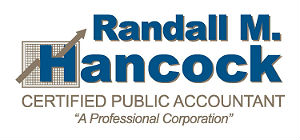Now, moving on to something I had to be very clear about during our busy season — “delegation”.
It’s such a catch word that we often don’t think through its layers.
For instance, we all know the old cliche: “Delegate, don’t dump!”
But one area that I’ve seen many Birmingham businesspeople struggle with is in helping others do this effectively, within their own organization. When you manage other managers, it’s a different skill than if you are the first-line manager, and you manage only workers.
As I’ve run my Birmingham accounting and tax firm, I’ve always encouraged my staff to never think of themselves as worker drones; there are always elements of what they do that requires managerial excellence — even, for instance, when they are “managing” clients.
Here’s a little crib sheet I go through my managers, when it seems like it’s needed…
Randall Hancock Shares How To Help Your Managers Manage
“Ability may get you to the top, but it takes character to keep you there.” – John Wooden
I’ve had to not only manage employees in the course of running my Birmingham accounting business, but I’ve also learned a thing or two about helping OTHERS do this.
Frankly, when an employee isn’t doing his or her job, your first instinct may be to blame the person for not following instructions, being lazy, or not caring about your organization. But I suggest that you take a step back, address the mirror and look at your own performance first.
Consider these possibilities:
Do employees know what you want?
Go beyond just assigning tasks. Give employees clear performance standards that will help them understand when they’re doing a good job: technical knowledge they need to master, quality and productivity measurements, and so forth.
Do they know why you want it?
Workers make better decisions about what they need to do if they know why a task is necessary: how it affects the company, the employee, and other people, and what happens when they don’t perform the task correctly.
Do employees know how to do the job?
This comes down to adequate training, for both new hires and longtime workers. Make employees part of the training process by having them train others in their new skills.
Do they think they’re already doing a good job?
A worker will think he or she is doing just fine if you don’t offer frequent and regular feedback. Let employees know what they’re doing well, and coach them to get better in areas where they’re weak.
Would you forward this article to a Birmingham business associate or client you know who could benefit from our assistance — or simply send them our way? While these particular articles usually relate to business strategy, as you know, we specialize in tax preparation and planning for Birmingham families and business owners. And we always make room for referrals from trusted sources like you.
Warmly (and until next week),
Randall Hancock
(205) 715-4488
